Retirement is more than leaving work behind; it is about creating the lifestyle you have long envisioned. One of the most effective ways to prepare is by simplifying your possessions. Over the years, homes often fill with items that once served a purpose but no longer fit your needs. Selling these things before you retire can give you extra cash, reduce maintenance, and help you live more freely. The process can feel refreshing, like a reset button, allowing you to focus on experiences rather than clutter. Here are twenty things worth selling as you prepare for a fulfilling retirement.
1. Extra Vehicles

Many retirees find that one reliable car is more than enough for their needs. If you currently own multiple vehicles, selling the extras can bring in a significant amount of money while lowering insurance and maintenance costs. Fewer cars mean fewer responsibilities and less stress over repairs or registrations. Downsizing your transportation also opens up space in your garage or driveway for other uses. You can use the extra cash to fund travel, cover daily expenses, or invest in hobbies you have long postponed. Letting go of an extra vehicle can simplify life and add financial security.
2. Large Furniture

Oversized furniture that once served a bustling household may no longer be practical in retirement. Large dining tables, sectional couches, or bulky bedroom sets can take up unnecessary space and be difficult to maintain. Selling these items allows you to downsize to pieces that fit your current lifestyle while creating a more comfortable and manageable living environment. Many younger families and new homeowners are eager to buy quality secondhand furniture, making it a great opportunity to earn money. By letting go of what you no longer need, you create space for relaxation and a simpler way of living.
3. Jewelry You Do Not Wear

Jewelry often carries sentimental value, but many pieces end up sitting unused in boxes or drawers. Selling jewelry you no longer wear can be an excellent way to turn forgotten treasures into meaningful cash. Gold, silver, and gemstones often hold significant value, and specialized buyers or jewelers may pay well for them. You can choose to keep the most meaningful pieces while parting with others that do not hold the same connection. The money earned can go toward creating new memories, whether that is traveling, taking classes, or simply enjoying daily comforts in your retirement years.
4. Tools and Equipment
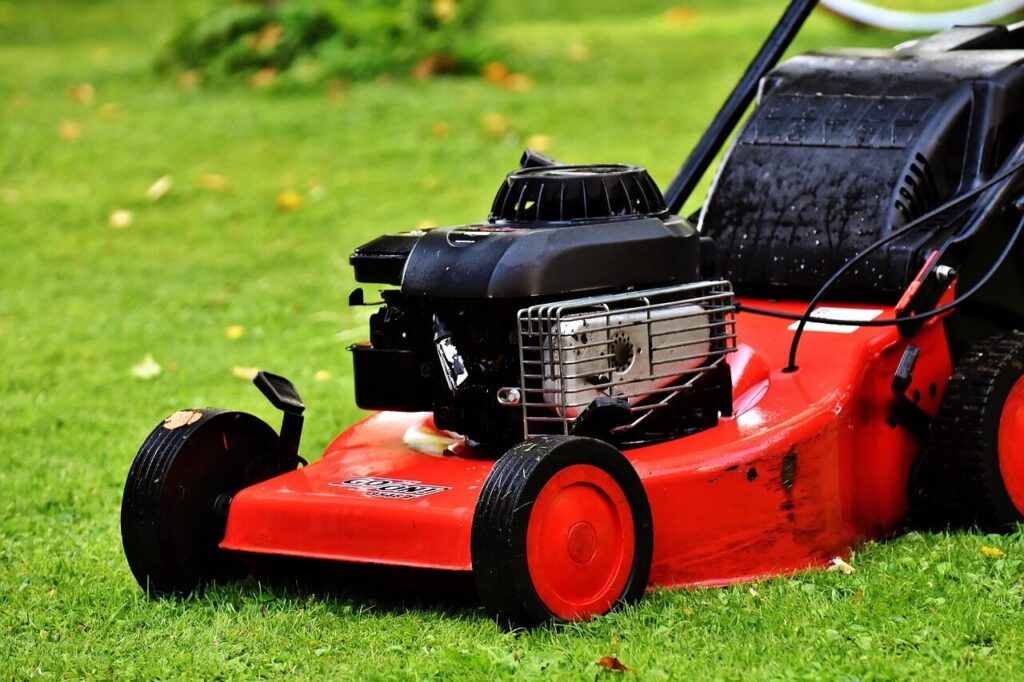
Retirement often means scaling back on big projects and heavy do-it-yourself tasks. If you have a collection of tools, power equipment, or workshop machines that rarely get used, selling them can be a smart move. Many hobbyists and younger homeowners are always looking for affordable tools, so demand is often strong. Not only does selling free up valuable storage space in your garage or shed, but it also provides extra income. You can keep a small set of essentials for light repairs while passing on the rest. This ensures your belongings are truly aligned with your lifestyle.
5. Electronics

From outdated laptops to extra televisions, electronics tend to pile up in every household. Many of these items lose value quickly, but if they are still in good working condition, selling them before retirement can add to your savings. Online marketplaces and trade-in programs make it easy to find buyers. Clearing out unused electronics not only puts money back in your pocket but also reduces clutter and the need for constant updates or repairs. By letting go of old gadgets, you can simplify your digital life and focus on the devices that truly serve your daily needs.
6. Collectibles
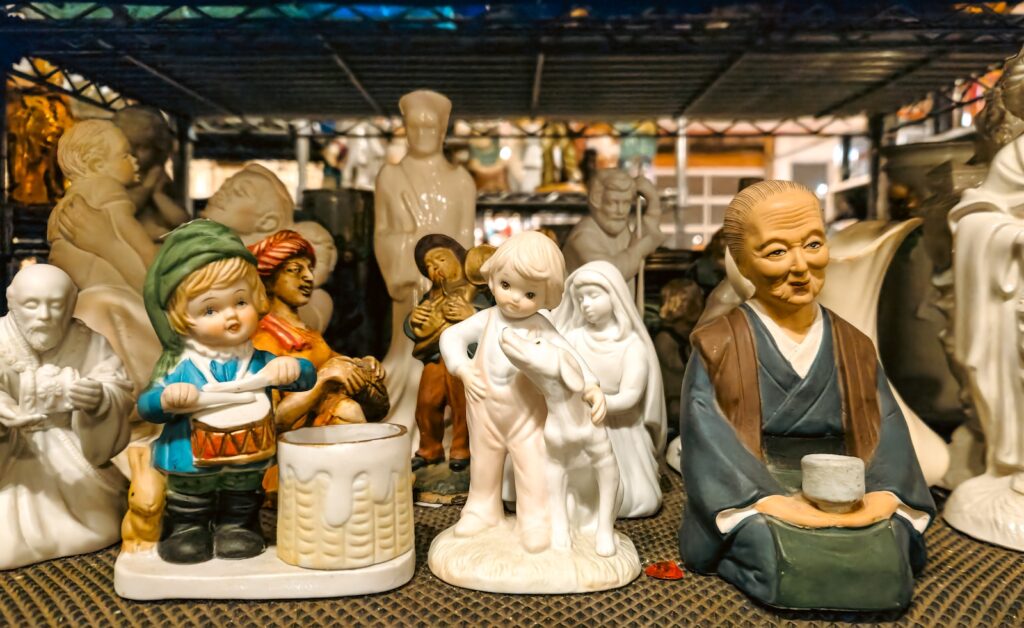
Over time, many people build collections of coins, stamps, figurines, or memorabilia. While these items may once have been a source of joy, they can become less meaningful as you shift into retirement. Selling collectibles can be surprisingly profitable, especially if they are rare or well-preserved. Dedicated collectors are often eager to purchase, and auctions or specialty shops can help you get fair value. Releasing a collection frees up space while putting cash toward more relevant experiences. Instead of holding on to items you no longer connect with, you can use the money to enrich your retirement journey.
7. Workout Equipment
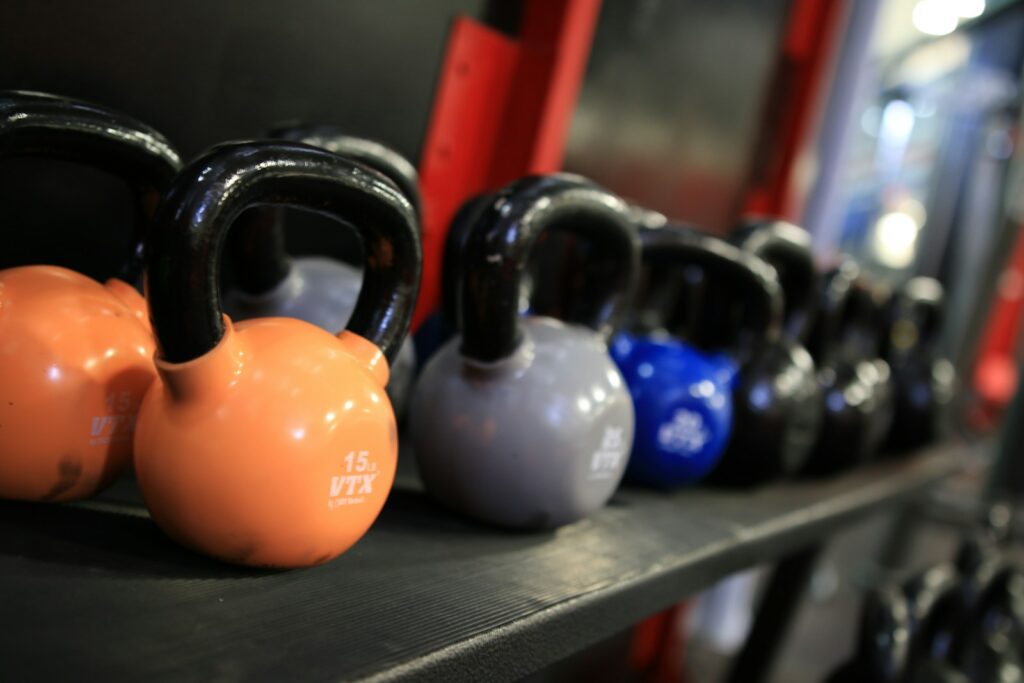
Heavy workout machines like treadmills or weight benches often end up as unused furniture in spare rooms. If your fitness routine has shifted to lighter activities such as walking, swimming, or yoga, it may be time to sell bulky equipment. Many people look for affordable secondhand options, making it possible to sell quickly while earning cash. Freeing up this space in your home also allows for a more open and enjoyable environment. You can reinvest the money into classes, memberships, or hobbies that better align with your current lifestyle. Selling unused equipment helps simplify your retirement home.
8. Seasonal Gear

Items like skis, surfboards, snow blowers, or camping gear often take up space while rarely being used. If you do not plan to continue these activities during retirement, selling seasonal gear can be a smart choice. Many outdoor enthusiasts and families look for affordable secondhand equipment, making it easy to find interested buyers. This not only provides you with extra money but also clears out storage areas like garages and sheds. Letting go of these items helps you focus on activities you truly enjoy while keeping your living space tidy and more manageable for the years ahead.
9. Home Décor
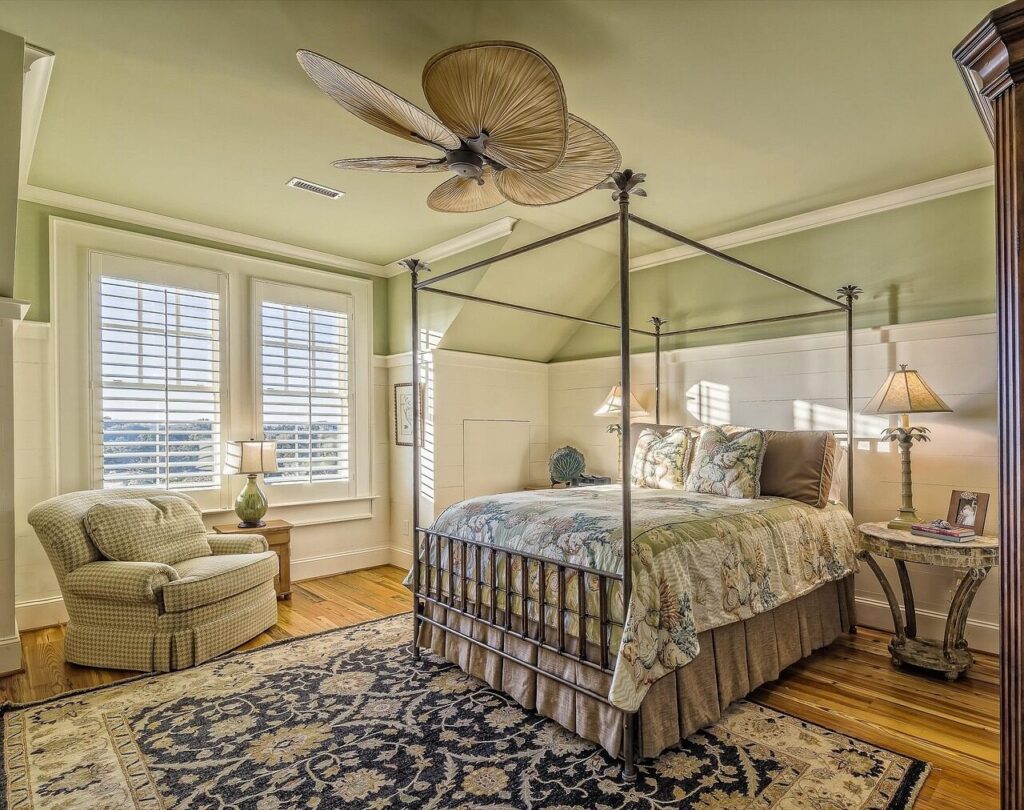
Tastes change over time, and the décor that once defined your home may no longer reflect your style. Selling artwork, decorative lamps, or extra décor pieces is a great way to refresh your living environment while earning money. Many people enjoy buying secondhand décor to furnish their own homes affordably, so there is often demand for these items. By selling what no longer suits you, your space becomes more personal, lighter, and easier to maintain. The process allows you to move toward a simpler lifestyle that focuses on comfort and meaningful items rather than excess decoration.
10. Books

Bookshelves can quickly overflow, especially if you have been collecting for years. While a few cherished volumes may be worth keeping, many books end up gathering dust. Selling novels, cookbooks, or reference materials can be a rewarding way to pass them on to someone who will appreciate them. Used bookstores and online marketplaces make selling easy and convenient. Letting go of books you no longer need not only clears space but also helps you create a more organized home. The money you earn can go toward other activities, while your retirement space feels more open and relaxed.
11. Musical Instruments
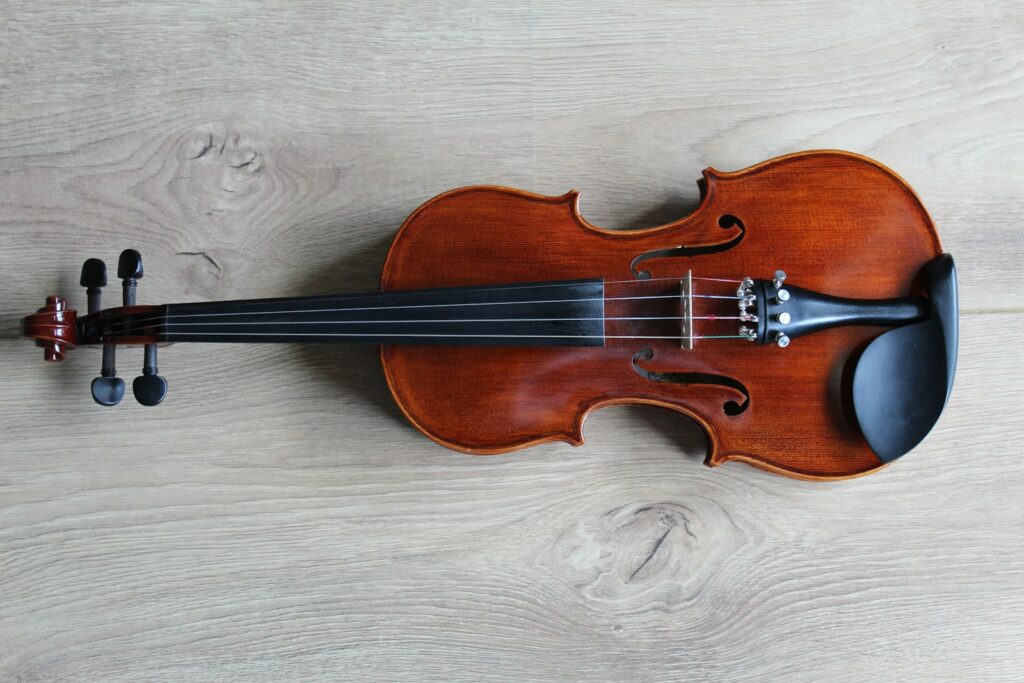
Musical instruments often hold sentimental value, but if you no longer play them, they may be better off in the hands of someone who will use them. Selling guitars, keyboards, or other instruments can provide a nice financial return, especially if they are high-quality. Instruments tend to hold their value well and are always in demand among students and hobbyists. Passing them on gives them a new life while reducing clutter in your home. The money you receive can be redirected toward experiences you truly enjoy, such as travel, workshops, or exploring new hobbies in retirement.
12. Designer Clothing
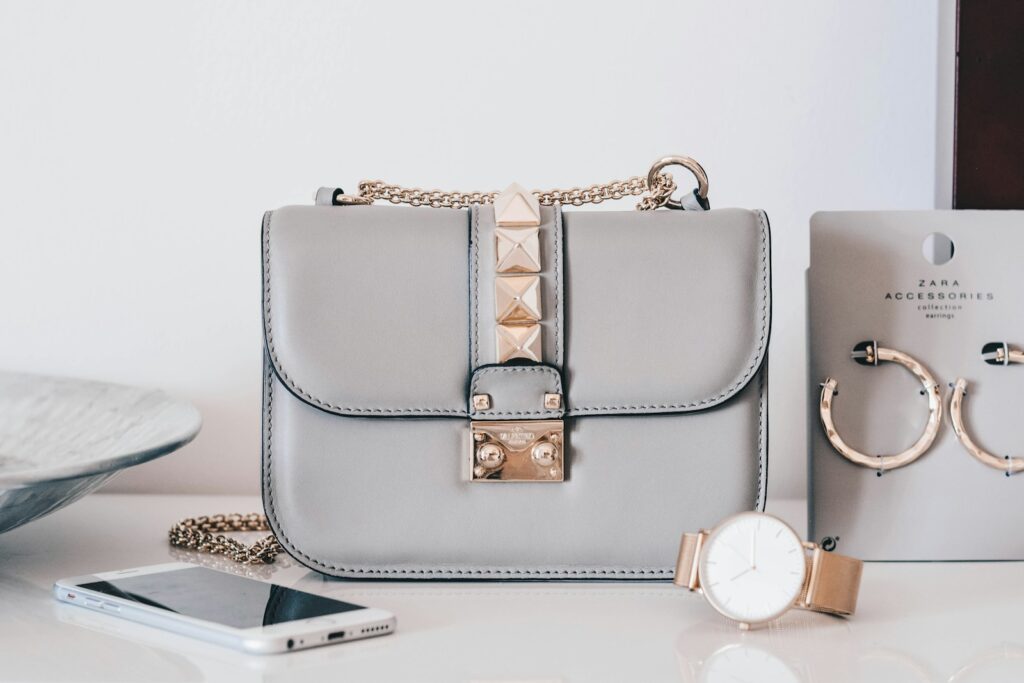
Closets often contain clothing, shoes, or handbags that rarely get worn, especially high-end designer pieces. These items can bring in considerable money if sold through consignment shops or online platforms. Retirees often prefer more comfortable and practical wardrobes, making luxury clothing less useful. Instead of letting them sit unused, selling allows others to enjoy them while you benefit financially. Decluttering your wardrobe also makes getting dressed easier and keeps your living space more organized. The extra funds can be used for leisure activities, trips, or hobbies that fit better with the relaxed and enjoyable lifestyle of retirement.
13. Fine China and Glassware

Special dishware and glass sets often spend more time in cabinets than on tables. If you find that you rarely use fine china or crystal glasses, selling them can be a smart decision. These items are still in demand among collectors or those who enjoy hosting elegant gatherings. Instead of letting them gather dust, you can turn them into extra retirement income. Simplifying your kitchenware makes everyday life easier and your home more manageable. Keeping only what you truly use ensures your cabinets are organized and accessible while also freeing up space for practical, everyday essentials.
14. Antiques
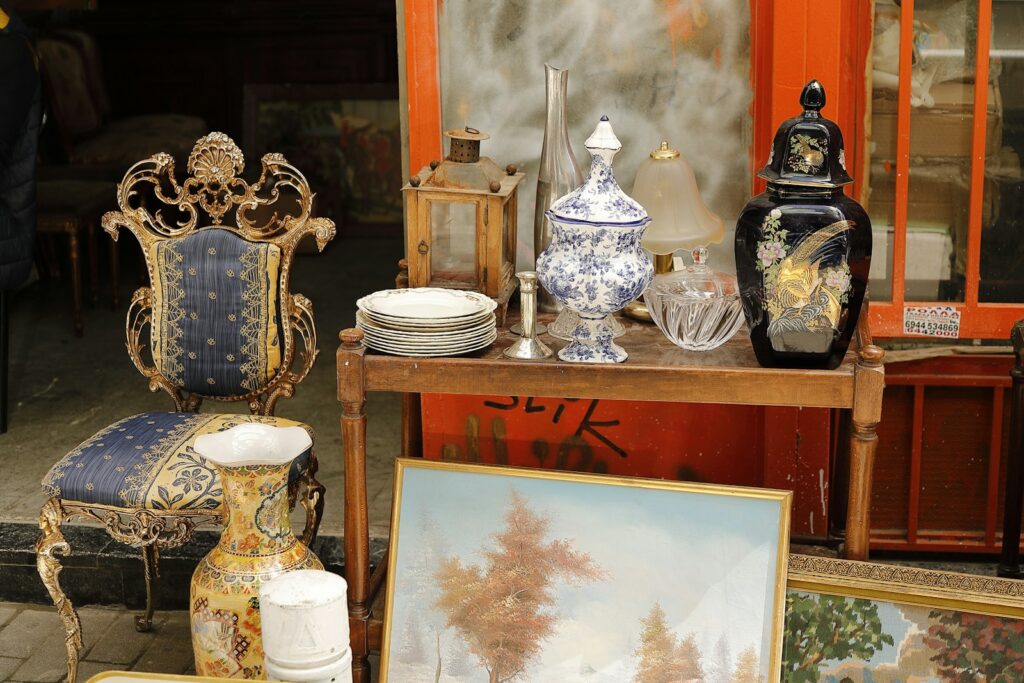
Antique furniture, décor, or heirlooms may have been passed down through generations, but they can sometimes feel out of place in a modern retirement lifestyle. If you are not emotionally attached to certain pieces, selling them can provide both money and extra room at home. Many antique shops and collectors are willing to pay a fair price for authentic items. Releasing these pieces does not diminish their history; instead, it allows someone else to preserve and appreciate them. The funds you earn can be directed toward meaningful retirement goals, making it easier to live comfortably and clutter-free.
15. Hobby Supplies

Many retirees find that their interests evolve over time. If you have supplies for crafts, painting, or other hobbies that you no longer pursue, selling them can be a practical choice. Craft stores and online groups often welcome secondhand supplies at affordable prices. Not only does selling free up space in your home, but it also gives others the chance to enjoy the materials you no longer need. Keeping only the supplies for activities you actively enjoy ensures your retirement years are spent doing what truly fulfills you, without being weighed down by unused or forgotten projects.
16. Sports Equipment

Sports gear like golf clubs, tennis rackets, or bicycles often takes up space, even when it is no longer being used. Selling equipment that does not match your current activity level can provide extra funds and reduce clutter. There is usually a strong demand for quality sports gear, especially among beginners. Instead of letting these items sit unused, you can pass them on to someone who will enjoy them while gaining financial benefit. Letting go also opens the door for you to focus on the activities that fit your lifestyle now, keeping your retirement active, balanced, and enjoyable.
17. Garden Tools
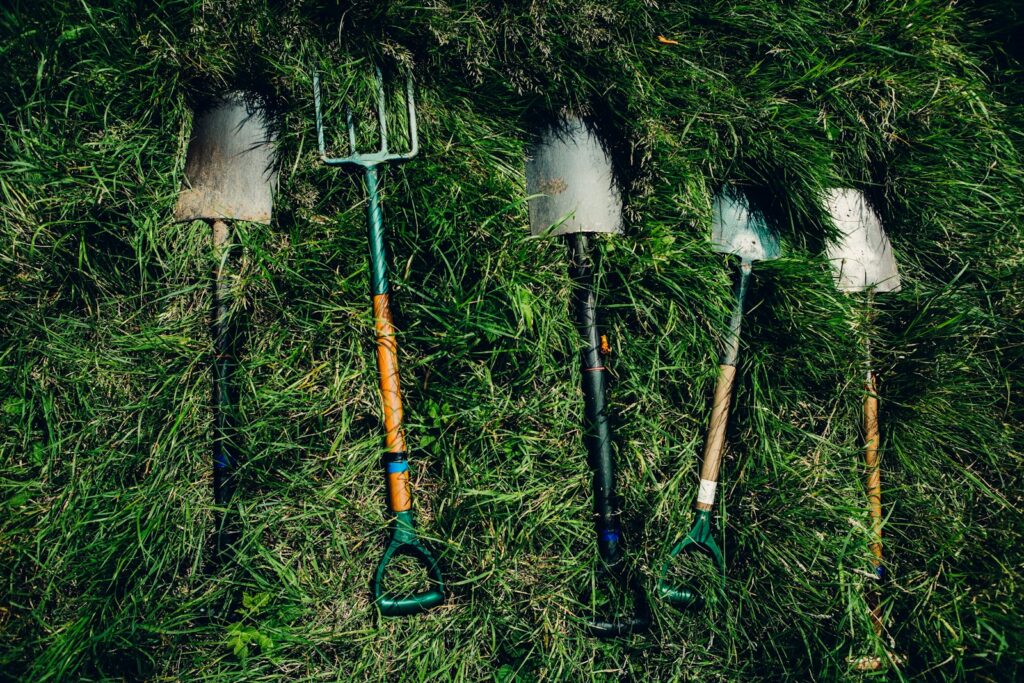
Gardening can remain a beloved activity in retirement, but you may not need the heavy equipment used in earlier years. If you are scaling back on outdoor maintenance, selling extra tools like lawnmowers, trimmers, or large garden machines can be worthwhile. Many homeowners are eager to buy secondhand equipment in good condition. Downsizing your collection not only frees up space in sheds or garages but also makes your gardening routine simpler and more enjoyable. You can keep the essentials for light yard care while passing on the rest, ensuring your outdoor work matches your retirement lifestyle.
18. Storage Items
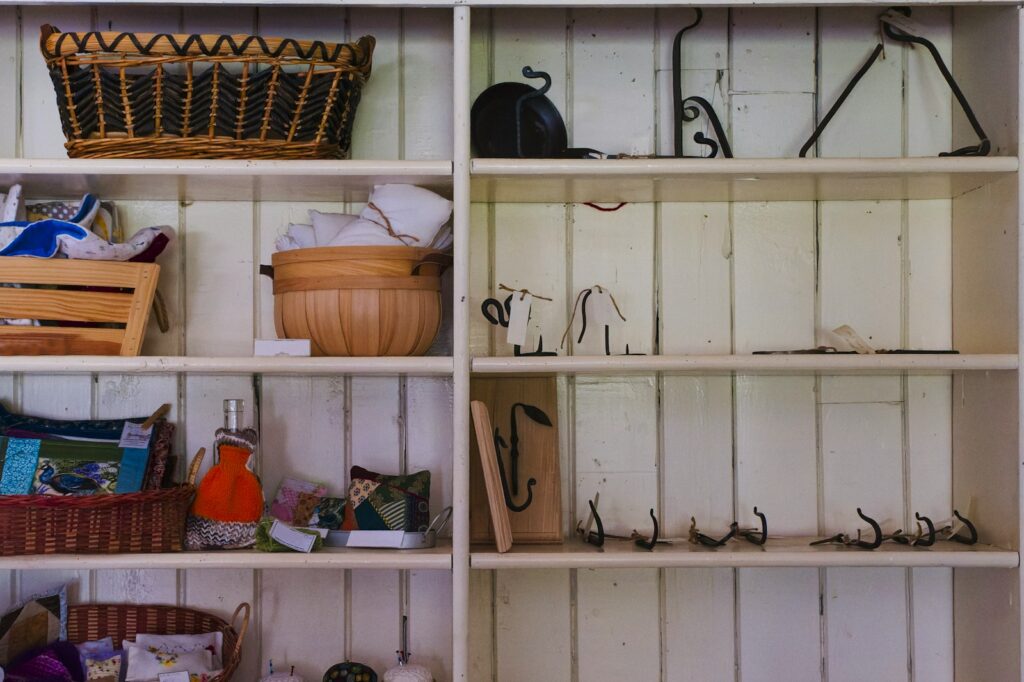
Over time, storage bins, shelving units, and racks can accumulate as you try to manage clutter. Once you have sold or donated the items you no longer need, these storage containers may also become unnecessary. Selling them gives you back valuable space and adds a little extra cash. Many people appreciate affordable secondhand storage options, making them easy to sell. By reducing excess storage, you create a more open and comfortable living environment. This also discourages the buildup of new clutter, allowing your retirement home to stay organized, simple, and focused on what truly matters.
19. Appliances
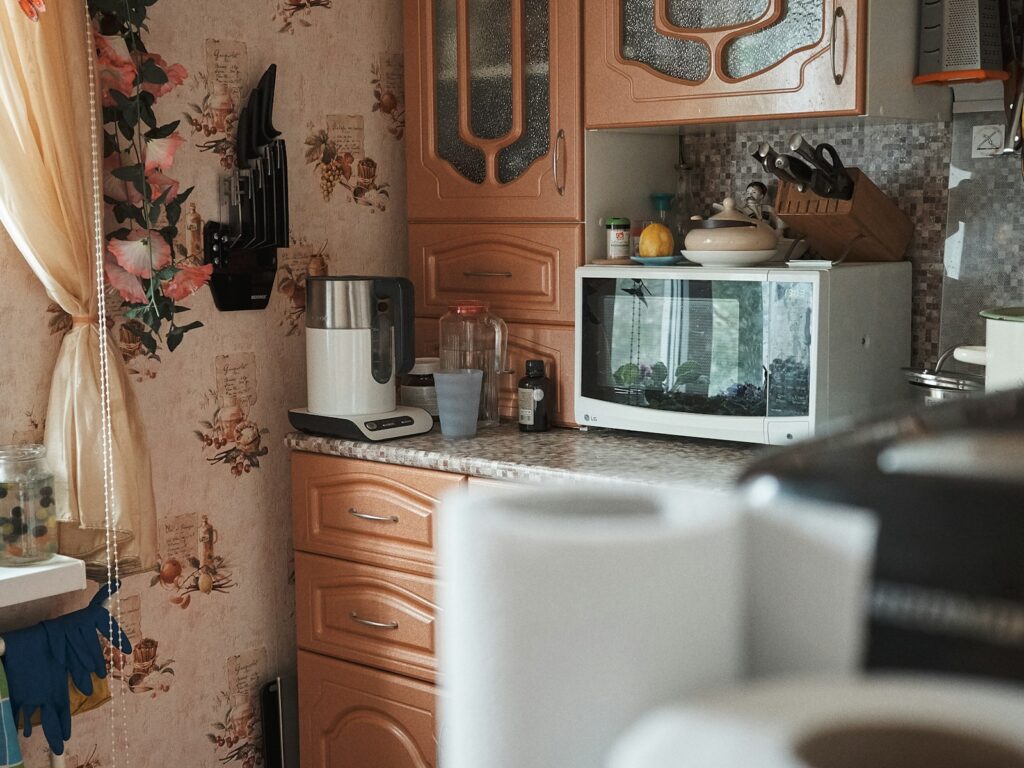
Extra kitchen appliances like microwaves, coffee makers, or slow cookers often remain tucked away in cabinets without being used. Selling them before retirement helps clear valuable space and puts money back in your pocket. Many first-time renters, students, or families look for affordable appliances, making it easy to find buyers. By keeping only the appliances you use regularly, your kitchen becomes more efficient and easier to manage. This makes everyday living simpler and reduces cluttered countertops. Selling unused appliances ensures your retirement home remains functional, organized, and perfectly suited to your needs and lifestyle.
20. Timeshares

Timeshares often come with ongoing fees and limited flexibility, which can become more burdensome during retirement. If you find that you rarely use your timeshare or prefer different travel options, selling or exiting your contract can save money and stress. Many services specialize in helping owners resell or transfer timeshares. Letting go of this commitment gives you more freedom to choose destinations that truly fit your retirement goals. Instead of being tied to one location, you can explore new places or invest in other activities. This decision provides financial relief and greater flexibility for your travel plans.
Comments